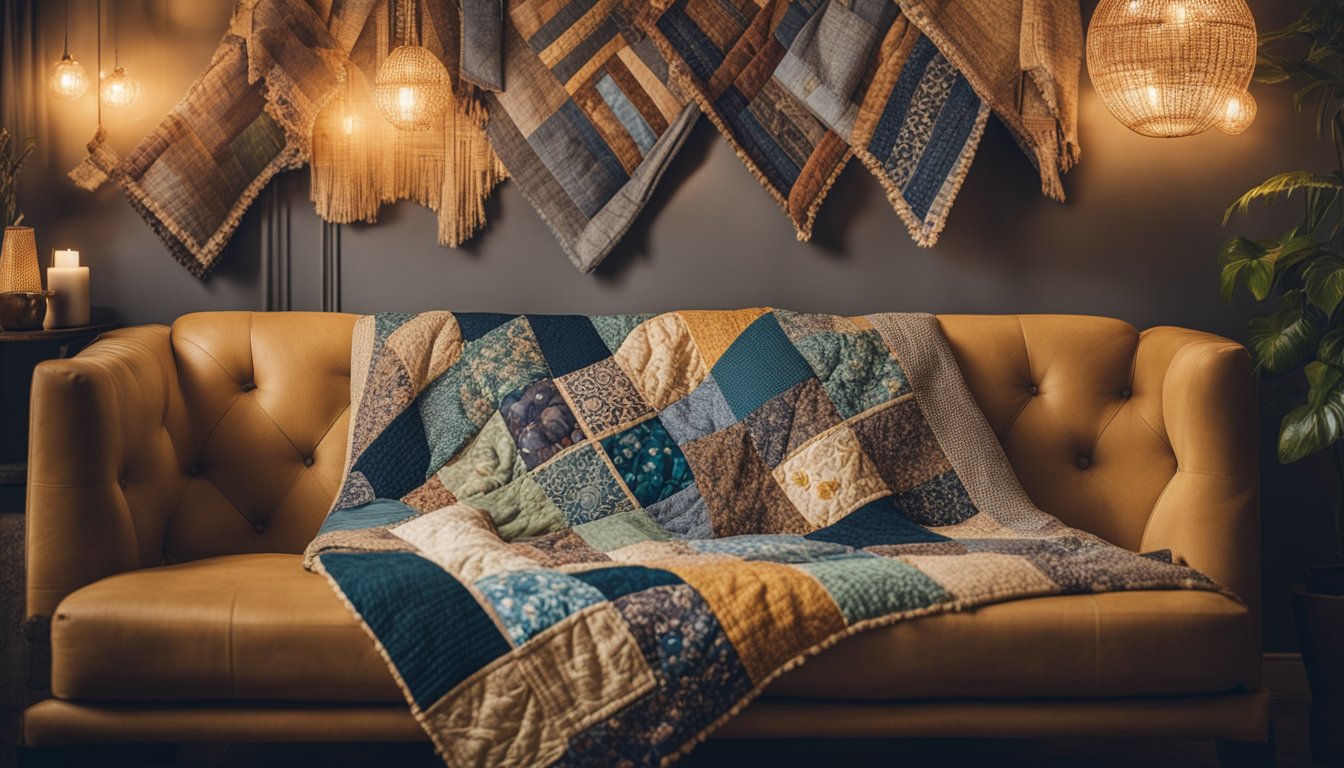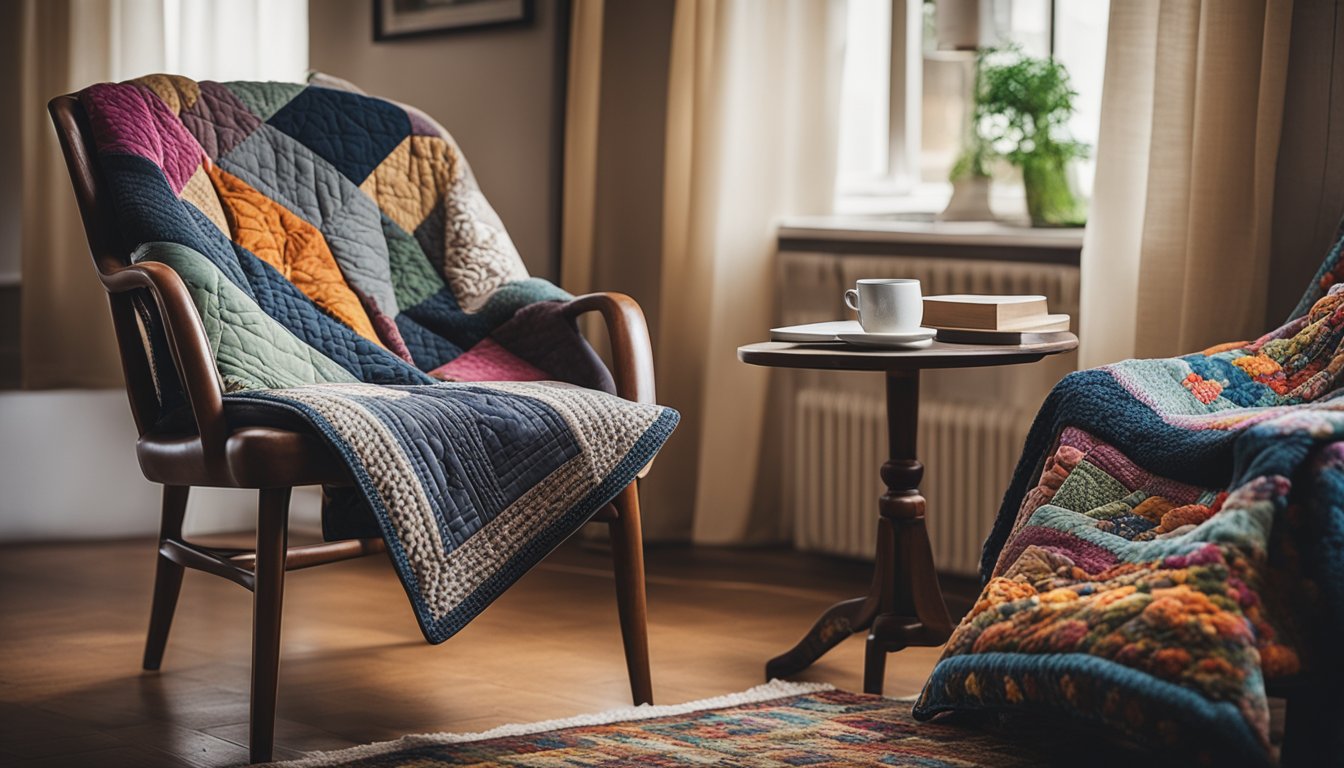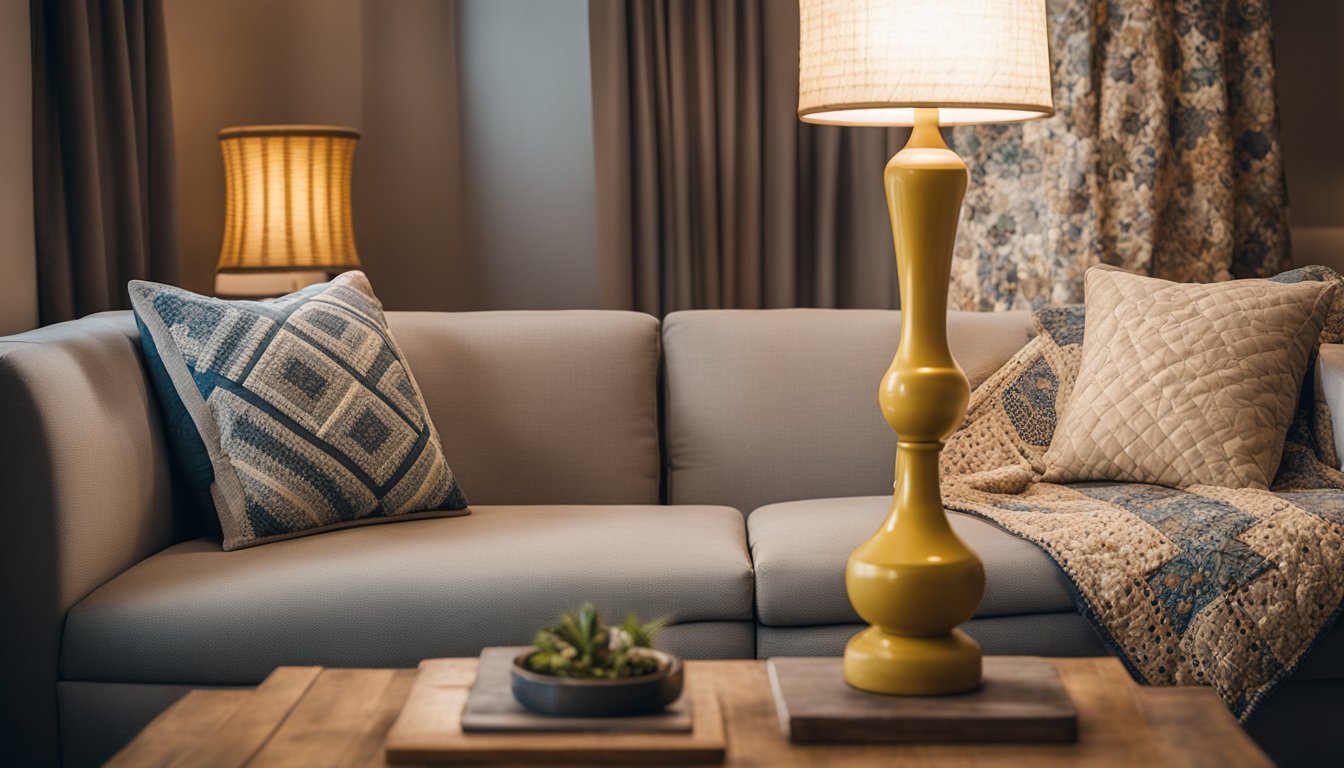Late updated: 05 Dec 2024 10:12
Written by: Daniel Harper
Creative Uses for Upcycled Fabrics in Home Decor: Innovative Design Ideas
We're excited to dive into the world of upcycling for home decor, where creativity meets sustainability to transform unused fabrics into beautiful decor pieces. Upcycling fabrics not only adds a unique touch to our living spaces but also promotes eco-friendly practices by reducing waste. From vintage linens to colourful fabric scraps, the possibilities for repurposing are endless and accessible, even for those with minimal sewing skills.

Incorporating upcycled fabric into our home decor allows us to create personalised items that reflect our style while honouring the planet. These projects range from crafting throw pillow covers and table runners to designing textile art and drink coasters. With each piece, we engage in a sustainable lifestyle choice that enhances our spaces with a personal flair and conscientious ethos.
As we explore these vibrant practices, our aim is to inspire everyone to see the potential in discarded materials. Whether we're adapting old fabric remnants or reimagining utilitarian items, upcycling empowers us to craft elegant and sustainable decor that tells a story and preserves resources.
Key Takeaways
- Upcycling fabrics enhances home decor and supports eco-friendly practices.
- Fabrics can be transformed into unique items like pillow covers and coasters.
- Personalised upcycled decor embodies sustainable lifestyle choices.
Understanding Upcycling in Home Decor

Upcycling in home decor involves creatively transforming old or unused items into stylish and valuable pieces. Through the repurposing of materials like fabric scraps, we not only reduce waste but also contribute to sustainable and eco-friendly practices in our living spaces.
Fundamentals of Upcycling
At its core, upcycling is about giving worn or discarded items a new purpose. It transforms the mundane into something remarkable. In the context of home decor, upcycling can involve simple projects like reusing fabric scraps to create patchwork cushions or crafting unique wall hangings.
Sewing projects often play a vital role in these transformations, allowing for bespoke items that express personal style. By repurposing fabric remnants, we breathe new life into materials that might otherwise end up in landfills. Upcycling encourages creativity while promoting sustainable living practices, making it a rewarding endeavour for those keen on reducing their environmental footprint.
Benefits of Repurposing Fabric
Repurposing fabric has numerous advantages that go beyond environmental impact. Economically, it reduces the need to purchase new materials, which can be costly. Creatively, it provides endless opportunities to personalise our living spaces with one-of-a-kind designs.
Using fabric scraps, we can craft anything from unique curtains to quilted throws, which add warmth and character to our homes. This not only helps reduce waste but also ensures that textiles are utilised to their fullest potential. Upcycling fabric supports eco-friendly practices and offers the chance to create meaningful decor with a personal touch.
Practical Upcycling Projects for Your Home
By repurposing scraps of fabric, we can create both decorative and functional items that enhance our living spaces. These projects not only add a personal touch to our homes but also contribute to sustainability.
Decorative Items
When thinking about decorative items, creating fabric flowers or bunting is a fantastic way to use up fabric scraps. These can transform any room with splashes of colour and texture. Fabric flowers can be arranged in a vase or attached to wreaths, while bunting adds a festive touch to walls and outdoor areas.
Patchwork quilts made from assorted fabric pieces showcase both skill and creativity. These quilts can serve as beautiful bedspreads or throws for the couch. For smaller projects, creating fabric coasters or holiday ornaments like fabric roses or bows can add charm to our tables or festive decor.
Functional Creations
Apart from decoration, fabric scraps can be upcycled into practical household items. Rag rugs are a wonderful example, providing comfort underfoot while showcasing a rustic farmhouse style. A pencil case or glasses case crafted from durable fabrics serves a practical purpose and makes for a thoughtful handmade gift.
Sewing projects such as cloth napkins, wallets, or a chapstick holder are straightforward yet effective uses of fabric remnants. Reusable fabric bookmarks are another simple project, perfect for book lovers. Additionally, weaving fabric scraps into fabric twine can produce robust cords for different household uses. By integrating these items into our daily lives, we embrace both functionality and creativity.
Frequently Asked Questions

Incorporating upcycled fabrics into home decor not only adds a personal touch but also promotes sustainability. From crafting unique items for sale to engaging children in creative projects, the possibilities are extensive.
How can leftover fabric be repurposed for crafting home decorations?
Leftover fabrics can be transformed into a variety of home decor items. We might use scraps to make patchwork quilts or cushion covers, adding colour and texture to a room. Curtains and table runners can also be updated with new patterns.
What are some unique items to create and sell using scrap fabric?
Creating and selling items from scrap fabric is a great way to utilise leftovers. We could design tote bags, textile art, or even jewellery. These products not only cater to eco-conscious consumers but also stand out as unique, handcrafted pieces.
Can you suggest some simple home decor projects for novice sewers using fabric remnants?
Novice sewers can start with straightforward projects like fabric bunting or simple pillow covers. Using fabric remnants, they can also sew placemats or napkins, providing a gentle introduction to sewing while adding charm to the home.
What are the best ways to engage children in making home decor items from fabric scraps?
Engaging children can be both fun and educational. We might encourage them to create simple wall hangings or fabric collage art. By allowing them to explore textures and colours, they learn valuable crafting skills and express their creativity.
How can I decorate my home with no-sew projects utilising fabric offcuts?
For those who prefer not to sew, fabric offcuts can still be used creatively. We can make fabric-covered canvases or create no-sew window valances with glue and a staple gun. These projects are quick, easy, and still offer a personal touch.
What are some creative yet practical products to craft from recycled textile pieces?
Recycled textile pieces are ideal for making items that serve both decorative and practical purposes. Consider crafting storage baskets or reusable shopping bags. These items not only help reduce waste but also provide functional and stylish options for the home.
